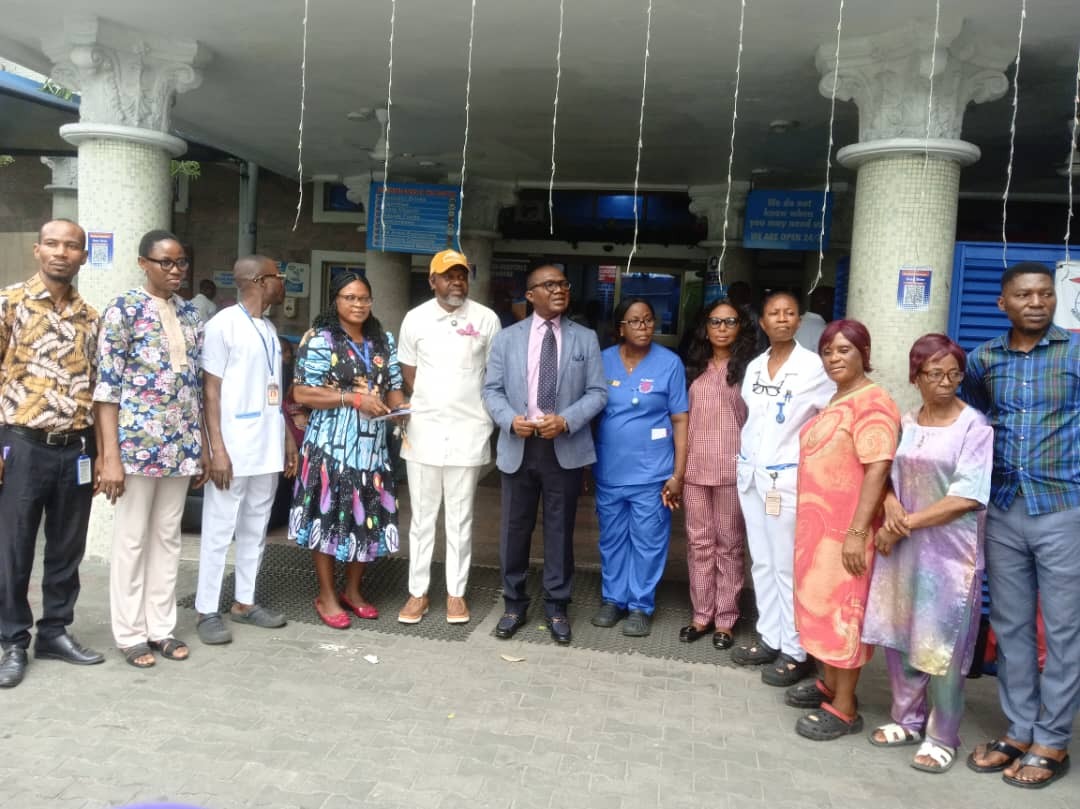
As Nigeria joins the rest of the continent today August 31, to mark to mark African Traditional Medicine Day(ATMD) , questions , such as why Nigeria’s traditional medical practice lags behind, need be asked.
With proven local remedies handed down from generation to generation and improved methods of recording, measuring, analyzing and synthesizing ancient pharmaceutical preparations why then has traditional medical practice been neglected?
And these days when Nigeria is facing dwindling economic fortunes and low foreign exchange inflow, why is African Traditional Medicine(ATM) still ignored when Nigeria can milk the cash cow that traditional medicine can become?
Much of the problem has been blamed on government’s inability to provide the enabling environment and adequate funding which have left traditional medicine practice, especially herbal medicine in the cold.
The Nigerian Institute of Pharmaceutical Research and Development (NIPRD) made some giant strides in the past decade by developing a world- accepted herbal sickle cell drug, Nicosan, a phytochemical being tested for the treatment of Sickle-cell disease (SCD).
But several years after, the development and marketing of the drug have stalled.
The National Agency for Food, Drug Administration and Control (NAFDAC), four years ago, set up a Scientific Committee on Verification of Herbal Cure Claims for 15 potential novel herbal drugs but the committee has been abandoned, efforts aborted due to lack of funds.
The Guardian investigation revealed that most of the relevant agencies domiciled under the Federal Ministry of Science and Technology (FMST) and the Federal Ministry of Health (FMoH) are struggling to survive due to poor funding from the government and there is no support from the private sector.
The establishments include: the Raw Materials Research Development Council (RMRDC), Nigerian Medicinal Plants Development Company (NMPDC) Abuja , Nigerian Natural Medicine Development Agency (NNMDA) Lagos, and National Institute of Pharmaceutical Research and Develoment(NIPRD) in the Federal Ministry of Health.
Through technological research and development (R and D), countries of the Far East Asia such as China, Japan and India have been able to meet 75 per cent of their health care needs through the development and utilization of herbal medicine and traditional medicine practice.
China for instance is the world’s leading producer and exporter of herbal medicine with total herbal medicine sales in 1993 estimated at $2.5 billion.
Meanwhile, only 40 per cent of herbal medicines consumed in Nigeria are produced locally;
the remaining 60 per cent are imported.
Again, the commercial interest to mass-produce herbal medicine through R and D and make them available for local and international use is lacking .
In Nigeria, efforts at local herbal medicine R and D are yet to yield the desired benefits due to low funding , lack of adequate facilities, non-commercialization of research results, low demand that constraints R and D investment and problems faced by herbal medicine researchers.
A professor of Pharmacognosy and President, Bioresources Development and Conservation Programme (BDCP), Maurice Iwu, told The Guardian: “ If you convert Nigeria’s entire budget to dollar terms, it would be less than the yearly budget of average standard pharmaceutical companies in the United States.
“If we are then able to harness our ATM and medicinal plants, we should be able to fund our budget. Most of the countries that are making it don’t rely on oil.
“There is the popular Moringa, a plant used by the Hausa to cook and there is no support for it.
“As we mark ATMD, we are still trying to encourage translation of our basic medical knowledge for clinical uses.
Part of that effort is that on the 14th of September, BDCP will be joining like minds in terms of reviewing the state of knowledge of those medicinal plants that have been well researched, catalogue, toxicity studies done that needs to be translated from traditional medicine into normal evidence based medicine.
The whole idea is that we have so many plants, roughly about 47 of them in African that have received significant attention.
“As we mark this day, it is now important for us to take the neglect of ATM as a symbol of what is wrong with us in the sense that we still believe that our salvation will come from outside whereas intrinsically we have to save ourselves, we have to solve our own problems.
Nobody else can do it for us. I think if we use the neglect of ATM as a symbol of what is wrong with us, the day would have been marked well.”
The professor of pharmacognosy said as part of the company’s programme, BDCP is partnering with the biomedicine research group at Nnamdi Azikiwe University (NAU) Awka, Anambra State, to start randomized clinical trials of some traditional medicines.
He also said , each year, BDCP brings together scientists, manufacturers, practitioners and the general public to look into the whole issue of herbal medicine.
He explained: “So the HerbFest this year is going to be in Owerri Imo State on October 11.
The whole idea is that we will be under one roof to explore this issue. Beyond that we are also linking up with other government agencies like RMRDC, FIIRO, NNMD, and NIPRD to look into the whole issue of plants as a whole to see what value we can add.
“Part of what is lacking has been our inability to connect the dots. If you go to research institutes and universities and see the amount of work they have done, you will be amazed. If you now talk to industry and you know the amount of quantity they need to import, you will also be amazed.
“ For an example, no pharmaceutical company in Nigeria can function without starch for making tablets.
“But pharmaceutical grain starch is largely imported and the companies are having problems with foreign exchange.
“There can be a programme under which Bank of Industry or the Central Bank of Nigeria can provide grants not loan towards solving the problem of pharmaceutical grain starch.’
“ We are also collaborating with RMRDC, NAU and Michael Okpara University of Agriculture Umudike, looking at Nigerian mushrooms one of which produces lovastatin, a drug used in lowering cholesterol.
Traditional medicine is dynamic. We are incorporating the rust mushroom Ganoderm into coffee and tea so people who normally take coffee and tea will now have Ganoderma, which helps in physical endurance, is anti-inflammatory and helps to modulate many diseases from hypertension , male erectile dysfunction , cardiovascular diseases and diabetes. So all those things are what Ganoderma confers to the tea and coffee.
“In a nut shell TM comes with all these income streams that if properly harnessed. If you cultivate medicinal plants it fetches more money, more value added than marketing it as just food plant.”
Director of Pax Herbal Clinic and Research Laboratories (Paxherbals) Ewu in Edo State with branches in Lagos, Rev. Fr. Anslem Adodo, told The Guardian: “If Paxherbals, a struggling herbal medicine company based in a rural community in Edo state, can employ over 150 workers without government support, imagine what could happen if government gives them some support.
“I believe that developing our TM will not only boost our health; it is also one of the best ways to eradicate unemployment in our society.
“While Chinese medical doctors, botanists, pharmacists and other scientists are all united in the development of their traditional medicine into a global transformative venture, Nigerian scientists are standing by the ring-side complaining about the attitude of charlatans and quacks.”
Adodo said “as a matter of priority, Paxherbals and the Institute of African Studies, University of Ibadan, have formed a partnership in the design of a framework for clinical trial of Pax anti-malarial herbal medicine called Malatreat.”
“This year, the two bodies redesigned a new Masters and PhD curricula on Traditional African Medicine and with the approval already by the university’s curriculum committee the institute will soon begin to admit Masters and PhD candidates in Traditional African Medicine” he said.
Adodo said Paxherbals and NNMDA ,in 2015 also teamed up with Irrua Specialist Teaching Hospital in Irrua (ISTH), Edo State, to evaluate the effect of Pax-herbal anti-malaria (Malatreat) on Plasmodium falciparum malaria and also acquire necessary clinical data for the design of randomized clinical trial of the herbal therapies.






